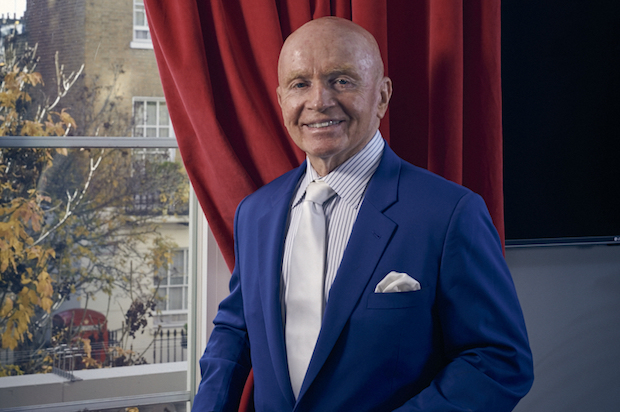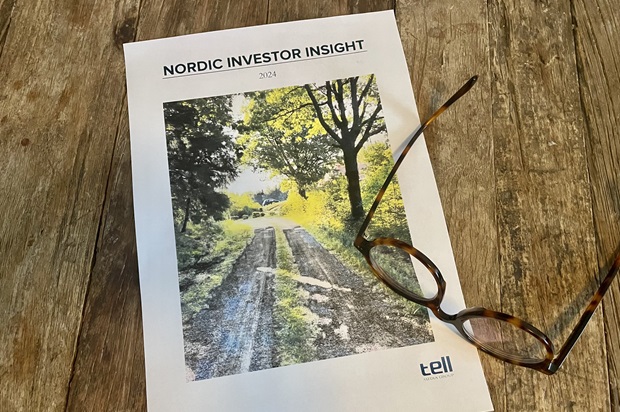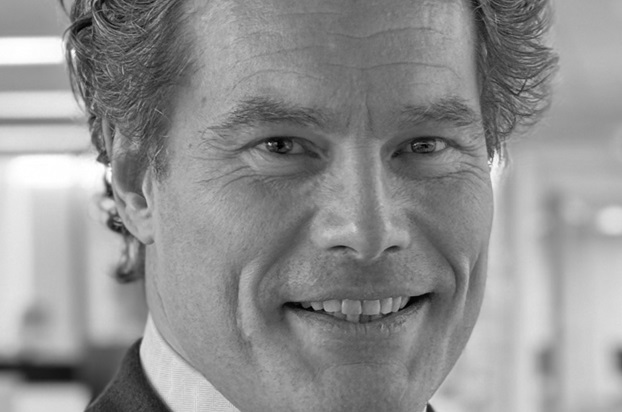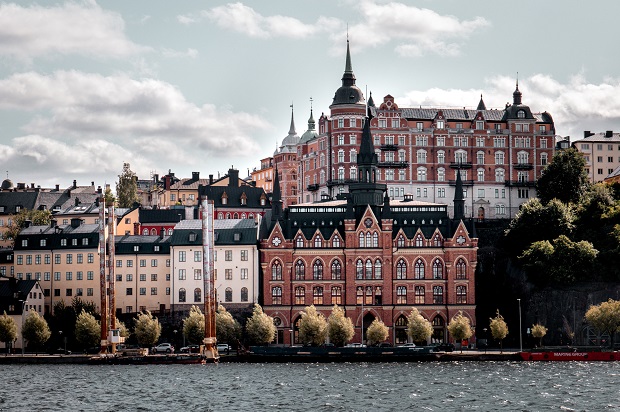
Mark Mobius: “Because of my name, I’m able to get through the door”
After more than 30 years at Franklin Templeton, Mark Mobius is now running his own company with a keen eye to find companies where corporate governance can be improved.
The loss of the private plane is not the only change that emerging market veteran Mark Mobius has had to face after leaving Franklin Templeton to set up Mobius Capital Partners last year.
“The big change is size. At one time we were running some USD 40 billion (EUR 36 billion) in emerging markets at Franklin Templeton and here we manage some USD 200 million. The other change is that we are much smaller and everyone has to be much more hands on. I have to be more hands on. It’s a big difference,” he says during an interview at Stockholm Waterfront Hotel on June 3. He is in the city to follow the development of Oriflame, which is a holding in the new fund. In mid-May, the Swedish founding family of Oriflame said it was making an offer to buy back the beauty products company.
Together with an investment team of close to ten people, Mark Mobius is in his new company running a single strategy focused on small- and mid-sized firms in emerging and frontier markets. It is a fairly small team, at least compared to where Mark Mobius worked before where he had analysts on the ground across the globe. Today, everyone in the team is based in London.
“The reason why we had so many people and were so spread out was that we not only had global emerging market strategies but also many regional and even country funds. We had to go more in-depth in each individual market,” he says. “Now everyone is focused on one strategy and it’s a very concentrated portfolio of only some 20 holdings.”
The investment strategy for the new fund rests on two pillars – fundamental, bottom-up stockpicking and an intense focus on corporate governance. “We don’t want to be aggressive. We want to work together with the companies to improve corporate governance and thereby hopefully improve the share price,” he says.
When asked if it is easier to do emerging and frontier markets today compared to when he started, Mark Mobius says it is more complex today. “In 1987, we only had six markets available to us. Everything else was closed. There were no China and no Russia. Most of Latin America was dictatorships or countries that didn’t welcome outside investors. Africa was closed and you had apartheid in South Africa. There was no Eastern Europe. Then markets started to open up and we were partly responsible for that,” he says.
As for how to handle the increased number of markets and companies available today, he says there is an increased need to focus. “A big advantage today, of course, is that we have access to data, which lets us screen the universe to something that we can handle,” he says.
A typical screening would eliminate all companies with a market cap above USD 20 billion. It would also take out companies with a debt equity ratio of more than 50 per cent and companies with a return on capital of below 20 per cent. To stay on the list, companies should also show a growth of at least 10 per cent per year.
“I want both safety and growth,” he comments, adding that the team also looks at the share price itself. “We don’t want to catch a falling knife. We’re happy if the share price has fallen but we would like to see a plateau or some degree of positive momentum.”
With regards to governance, the team talks to companies to understand if they are willing to change and work with the firm to improve their governance. He says that the ideal company would have fairly good governance without anyone knowing about it. “Then we could help them make what they’re doing more public. That’s rare. A lot of companies are not aware of what shareholders are thinking about and what we’re looking for,” he says.
For a long time there has been a trend of globalisation and the opening up of new markets, which is now reversing with the latest US – China trade war.
“There are very big changes taking place and this trade war between the US and China is getting very serious. I frankly didn’t expect this. I expected the Chinese, in their wisdom, to reach a quick agreement with Trump because my thinking is that they take the long view whereas the US is looking at the short term. That didn’t happen. Now, I think the US is not seeing this as a trade dispute any longer but as a strategic dispute,” Mark Mobius says. According to him, this means a restructuring of the global marketplace and that there will be both winners and losers.
“The consumer market in the US will not decline and we must be aware of where goods will be made going forward. We have always said that we are bottom-up stock pickers but it’s impossible to ignore these geopolitical factors,” he says.
Before and after the launch of the new fund in September last year, the team has been on the road in both Europe and the US to meet with potential clients. “Because of my name, I’m able to get through the door. But, then they say ‘Nice to meet you and we know about your history but what have you done lately? What’s your performance now?’ When you go to a big institutional investor, they will say that they need a three-year performance history and the fund also needs to become bigger before they invest. However, there are a lot of family offices that are interested. They’re interested in doing something different to the index,” he says.
Mark Mobius says that as there is so much money looking for investments, he is confident that the new firm has an opportunity, provided that it delivers on performance. “At the end of the day, the only hope we have is to outperform the ETFs. If we don’t, all hope is lost because our fees are, of course, much higher,” he says.
He notes that with over half of emerging market assets being invested through ETFs and index products, the good news is that the Chinese market has struggled. “That’s some 30 per cent of the index, which means that the index will struggle. Our job now is to not be in Chinese stocks and hopefully outperform that index. That’s our big opportunity because then we have a good argument when we meet with potential investors,” he says.
A big debate circles around cash levels as the fund currently sits on some 30 per cent in cash. “It’s a big battle for us but cash is an investment as well. I don’t want to be forced to have zero cash because that will force us into lousy stocks. I want to make sure we are invested in the very best companies and that takes time. At the end of the day it’s about performance and to achieve that we must be convinced that we hold the best companies in the world. I need us to be convinced,” he says.
Talking about the long-term vision for Mobius Capital Partners, the industry veteran says that the first aim is to grow the current equity strategy into a billion dollars. “Once we get closer to one billion, we will start to look at fixed income,” he says.
Asked about his relationship with Franklin Templeton today, he says it’s very good and that he still keeps in touch with people from the emerging markets group. “It was like a family. We were some 80 people and we have a WhatsApp group and meet up when we are in the same place around the world,” he concludes.



